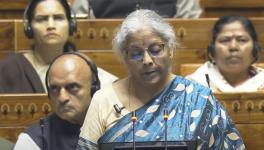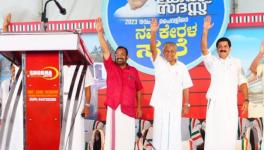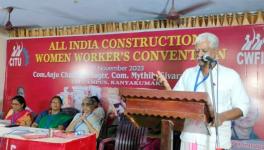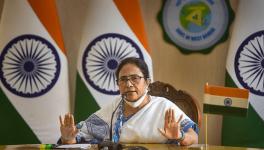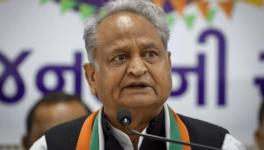Eminent Economists Recommend More Pensions, Maternity Benefits in Next Budget
Several prominent economists have proposed to the Union finance ministry to increase social security pensions and make adequate provisions for maternity benefits in the 2023-24 Union Budget.
In an open letter addressed to Union finance minister (FM) Nirmala Sitharaman, 51 eminent economists—including Abhijeet Singh (Stockholm School of Economics) and Aditya Bhattacharjea and Jean Drèze (Delhi School of Economics)—have flagged social security pensions and maternity entitlements.
“Since both proposals were ignored, we are writing again, well in advance of the next Budget, with the same recommendations,” the letter reads.
In the follow-up to their letters of December 20, 2017, and December 21, 2018, addressed to Sitharaman’s predecessor Arun Jaitley, the economists highlight the Centre’s ‘unfairness’ of not increasing its contribution to the National Old Age Pension Scheme (NOAPS) scheme.
“[It] has stagnated at just Rs 200 per month since 2006. This is unfair. It is also a missed opportunity. NOAPS is a good scheme (with low leakages and administrative costs) that reaches some of the poorest members of society,” the letter reads.
Recommending an immediate increase in the Centre’s contribution to the NOAP and widow pensions, the economists write: “The Central government’s contribution should be immediately raised to Rs 500 (preferably more) at the very least. This requires an additional allocation of Rs 7,560 crore or so based on the current NOAPS coverage (2.1 crore pensioners). Similarly, widow pensions should be raised from Rs 300 per month to Rs 500 at the very least. This would cost just another Rs 1,560 crore.”
The letter also highlights how the Narendra Modi government “didn’t act for many years” on ensuring maternity benefits of Rs 6,000 per child, which is a legal entitlement of all women (except those already covered in the formal sector) under the National Food Security Act, 2013, (NFSA).
“In 2017, a scheme was finally launched for this purpose: the Pradhan Mantri Matru Vandana Yojana (PMVVY). However, the provision made for it in the Union Budget never exceeded Rs 2,500 crore—less than one-third of what is required based on NFSA norms.”
The economists have also mentioned that in “flagrant violation of the Act, PMMVY restricts the benefits to Rs 5,000 for just one child per woman”.
Recommending full-fledged implementation of maternity entitlements, as per NFSA norms, the economists write that it would require, at least, “Rs 8,000 crore (assuming a birth rate of 19 per thousand, effective coverage of 90% and 60:40 ratio for Centre:state contributions). Along with this, the illegal restriction of maternity benefits to one child per woman should be removed”.
Besides, the payment system should be “streamlined” so that “pensions reach the recipients on time every month, i.e. by the 7th day of the month as directed by the Supreme Court in its order of November 28, 2001”.
In the December 2018, letter, the same economists had asked Jaitley to ensure that the same issues got adequate attention in the 2019 Budget.
The December 2017 letter had flagged the delay in the rollout of the maternity benefit scheme announced by Modi on New Year’s eve in 2016.
“On December 31, 2016, Prime Minister Narendra Modi finally announced that maternity benefits would be provided very soon. One year later, however, the new scheme framed for this purpose (Pradhan Mantri Matru Vandana Yojana) is yet to be operationalised,” the economists wrote. The letter also pointed out that restricting the benefits to only the firstborn is in violation of the NFSA.
Get the latest reports & analysis with people's perspective on Protests, movements & deep analytical videos, discussions of the current affairs in your Telegram app. Subscribe to NewsClick's Telegram channel & get Real-Time updates on stories, as they get published on our website.














